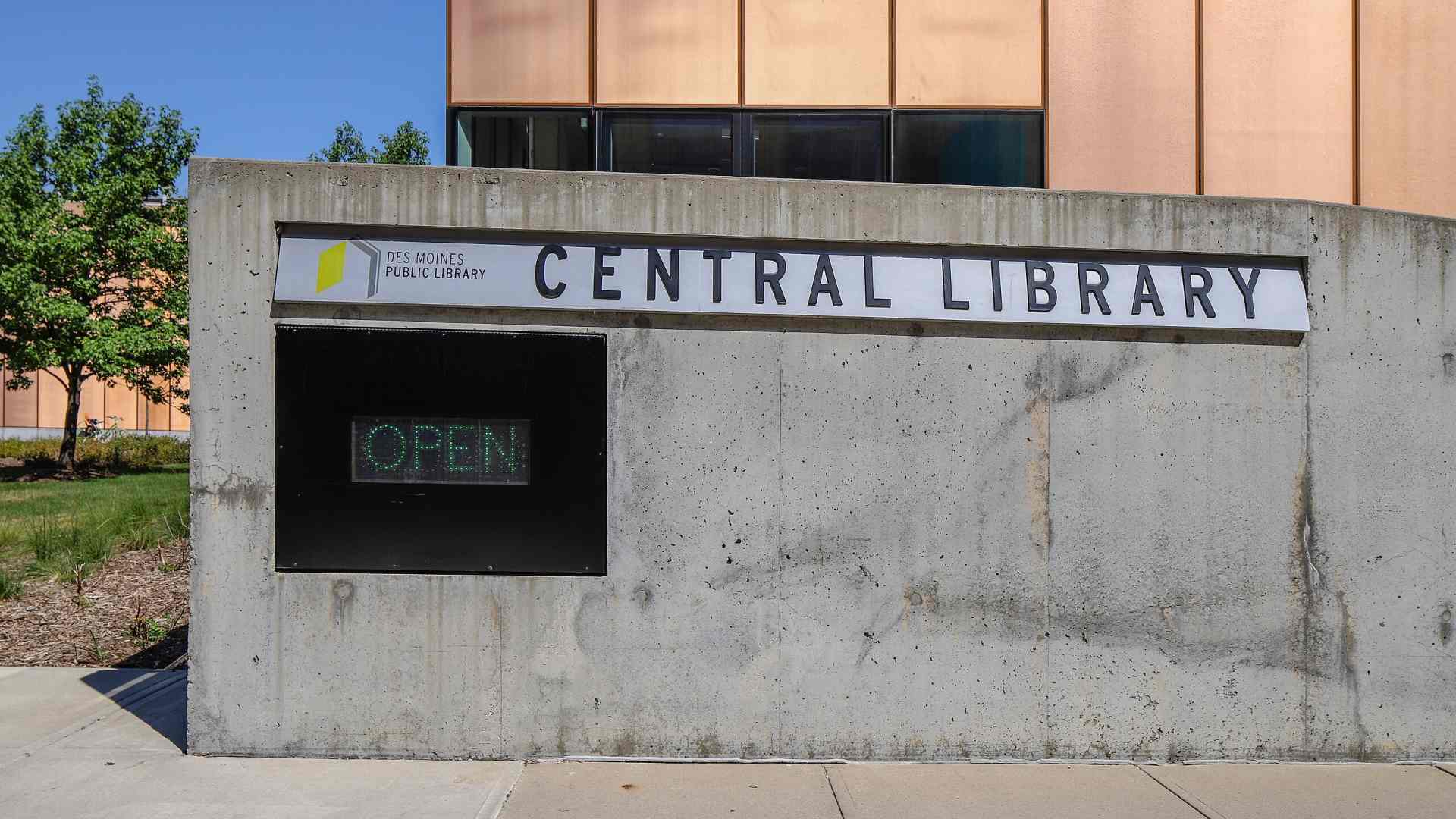A new bill in Iowa, which is likely to be signed into law by Governor Kim Reynolds, would target migrants living in the state illegally. It would empower state authorities to arrest and deport some of these migrants if they have been previously denied admission or removed from the United States.
The potential of this law going into effect has Iowa migrant communities worried, with some asking if they should leave the state for somewhere else before enforcement begins.
Iowa Bill

Paul Burley/Wikimedia
The Iowa bill being considered is called SF 2340. On March 19, it passed the Iowa House with 64 yes votes and 30 no votes.
The bill is described as “An act relating to illegal reentry in the state by certain aliens, prohibition on arrest in certain locations, orders to return to a foreign nation, immunity from liability and indemnification for enforcement actions, sentencing restriction, and providing penalties.”
Migrant Worries

Paul Burley/Wikimedia
Erica Johnson, the executive director of Iowa Migrant Movement for Justice, hosted a meeting for migrants in a Des Moines public library. The meeting was attended by 80 people and Johnson sighed when one person asked “Should I leave Iowa?”
In response, Johnson answered back in Spanish. “Entiendo el sentido,” which means she understood the sentiment.
Hard to Answer Questions

People at the meeting submitted written questions, which were read aloud in Spanish by community organizer Fabiola Schirrmeister. Many of the questions people had did not have easy answers.
They asked if it would be no longer safe for them to call the police if they had an emergency. Some were concerned if the Iowa police could ask about immigration status, while one question asked what to do about racial profiling.
Crumbling Bridge With Law Enforcement

Some pro-immigrant voices are concerned that this law will undo the progress made between Spanish-speaking communities and law enforcement, an effort that has been sustained and built up over many years.
Schirrmeister, who is also a Spanish-language radio host said “It’s sad how it’s going to hurt the trust between local enforcement, pro-immigrant organizations, and the immigrant communities.”
Des Moines Police

The Des Moines Police Chief Dana Wingert told the Associated Press in a statement that immigration status will not be a factor in their department’s work, stressing that they only want to keep the community safe.
Winger asserted that it would be “disingenuous and contradictory” to start considering immigration status when the department has been trying to eliminate this bias from its police force. “I’m not interested, nor are we equipped, funded, or staffed to take on additional responsibilities that historically have never been a function of local law enforcement,” Winger said.
National Level Issue

Opponents of SF 2340 think that the bill goes too far in its scope, preferring the immigration issue to be addressed on the national level.
“Immigration, with all of its nuances and implication, is a national issue that demands a cohesive federal response,” Democratic representative Sami Scheetz said. “Attempting to address it at the state level not only oversteps our bounds, but also risks fragmenting our approach to a challenge that affects every corner of our nation.”
Deportation is Dangerous

Other critics of state-level deportations point out that the process is inherently dangerous and can be difficult to carry out effectively. Immigration law expert Huyen Pham of Texas A&M School of Law said the Iowa bill has problems with implementation and enforcement.
Pham says that immigrant deportations are a “complicated, expensive, and often dangerous” federal process.
Is it Constitutional?

SF 2340 is based in part on a similar law that Texas recently passed, which has been held up in the court system over its legal standing. Eschucha Mi Voz Iowa, an immigrant community organization, released a statement calling the law unconstitutional.
“We will continue to fight this unconstitutional law during rulemaking, in the courts, and on the streets,” said the news release. “We will continue to organize to stop deportations, protect refugee children, and keep families together.”
Proponent Response to the Constitutional Argument

Supporters of the bill, like the bill’s floor manager Representative Steve Holt, say that while previous state laws around illegal immigration have been struck down, he is confident that the constitution supports such measures.
Holt points out that while the Texas law has been stalled in court, the Supreme Court is allowing it to be enforced while it makes its final ruling. Holt insists that states have a right to “repel invasions.”
Separating Legal From Illegal Immigrants

Holt stresses that the bill’s critics have lost sight of the distinction between being a legal and illegal immigrant in America. He says this legislation is necessary to stem the tide of what he considers an invasion of illegal migrants into the state.
“Yes, there are many in our country and our state illegally who just came here for a better life. We know that,” Holt said. “But there are also gang members, drug dealers, and terrorists who are here endangering our citizens. We know that too”
Governor’s Comments

Iowa Governor Reynolds has signaled an intent to sign the bill, saying that states have to step up to do what the Biden administration is failing to do.
“President Biden and his administration have failed to enforce our immigration laws and, in doing so, have compromised the sovereignty of our nation and the safety of its people,” Reynolds said. “States have stepped in to secure the border, preventing illegal migrants from entering our country and protecting our citizens. Americans deserve nothing less. I look forward to signing SF 2340 into law.”
